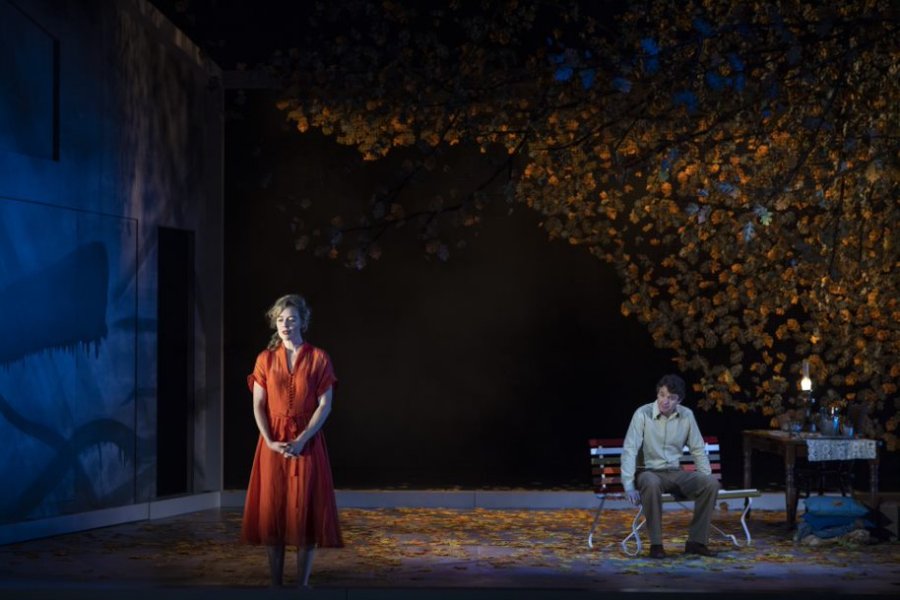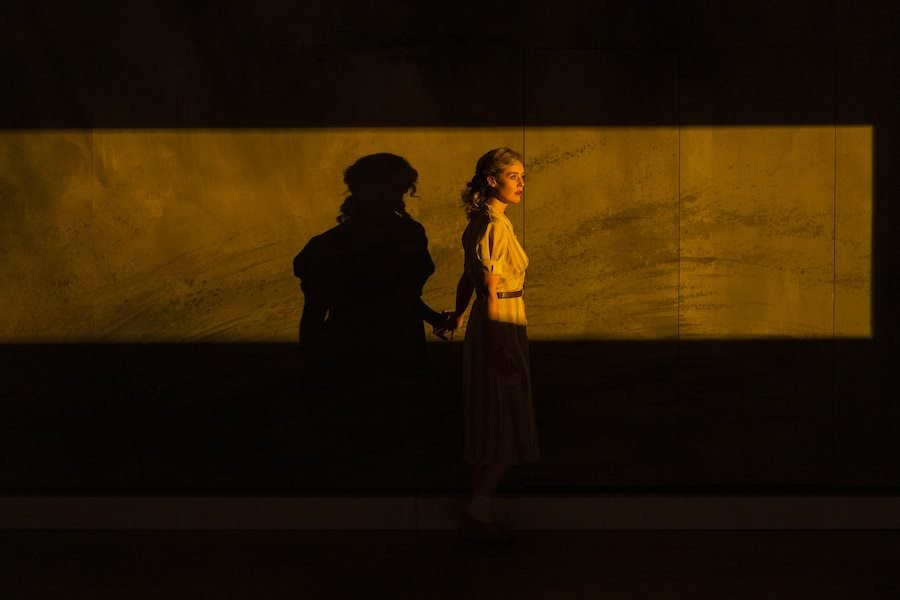By Adam Rafferty
The subject of Sunday and John Reed and the ‘Heide Circle’ of artists established in 1930s and 40s Melbourne is one ripe for storytelling. This group, patronised by the Reeds, are now counted amongst some of Australia’s best-known and most beloved modernist painters; and ‘Heide’, the former dairy farm on the banks of the Yarra that the pair offered up as a sort of artist’s commune, is now home to a Museum of Modern Art.
For the time, Sunday (Nikki Shiels) was an uninhibited and outspoken woman. When she met lawyer John Reed (Matt Day) at a tennis party in 1930 the pair found they had a simpatico view of life and art that lead not only to opening up their eventual home to artists, but to opening up their marriage as well.
Often described as his muse, Sunday Reed reportedly had more than a small influence on the artist Sidney Nolan (Josh McConville) and his ‘Ned Kelly’ series of paintings, but it was their open affair and domestic arrangement with John that sparked much speculation. Subsequent feuding amongst members of the Circle has also given an enigmatic air to the Reeds, so much that it seems almost incumbent upon the Melbourne Theatre Company to devote resources to dramatizing their lives.
As far back as 2017, director Sarah Goodes commenced talks with playwright Anthony Weigh to establish a structure for the story and the couple determined then, not to focus on what was already known from biographers’ writings, but to fill in the “gaps and shadows” of the unrecorded, unknown moments of Sunday Reed’s life.
It’s this decision that makes Sunday as a play, most artistically interesting, but I feel it’s also what makes the production remote and elusive to all but those who already have a solid knowledge and understanding of the woman, her achievements, foibles, and reputation. For without a more benevolent structure to establish their story, the Reeds come across as quite unsympathetic characters. Saddled with the ‘burden’ of colonial privilege, they live their lives in a way that is admirable in one sense and detestable in another, at least as it is seen through the lens of this bloated and at times, grandiloquent script.
Perhaps the audience for this production, on the most part, will be those who do have enough familiarity with, and empathy for, Sunday Reed and her husband that they are ready for the gaps in their awareness to be filled-in with the dramatic constructs of what might have led to the pair and Sidney Nolan never speaking again after one fateful night in 1948. But, as a first exposure to these characters they come off quite unlikeable, even given the superlative performances from the cast.

The ‘working-class’ member of the trio, Sidney Nolan, is shown as having such confidence in his own artistic abilities (with Sunday being his worst critic), that it’s also rather difficult to warm to his character, regardless of his less advantaged path.
The set design by Anna Cordingley – lit skilfully by Paul Jackson – is structured like a trapezoidal picture frame, giving painterly perspective to the stage. Evolving from muted brushstrokes to a stunning autumnal reveal, the back of the set is punctured by a Ned Kelly-esque slot in the wall that provides a crafty place for date and location information to be shared as the story jumps around in time. It’s a deceptively simple setting that brings focus to the performances.
Of those performers, Nikki Shiels is one of the most admirable actresses treading the boards in Australia right now, and there’s no denying the quality of her performance here. Equal parts bold, poised and fearless, Shiels embodies Sunday with a glowing brusqueness that’s quite unique. Matt Day gives John Reed a strength that is perfectly balanced with softness, delivered to somewhat explain his passive position in the trio’s relationship. Josh McConville’s ability to bring a sinewy strength to Sidney Nolan, all while he is regularly out-manoeuvred by Sunday, is a refreshing character type that allows a cutting-edge performance. Ratidzo Mambo as Joy Hester and Joshua Tighe as her son Sweeney both give solid performances in their small supporting roles that unfortunately feel inessential.
At a lingering 3-hour duration, this well-produced story is bolstered by excellent performances but weighed down by an overly florid and intentionally arty structure. Maybe it’s the mainstage equivalent of modern art.
Images: Pia Johnson





